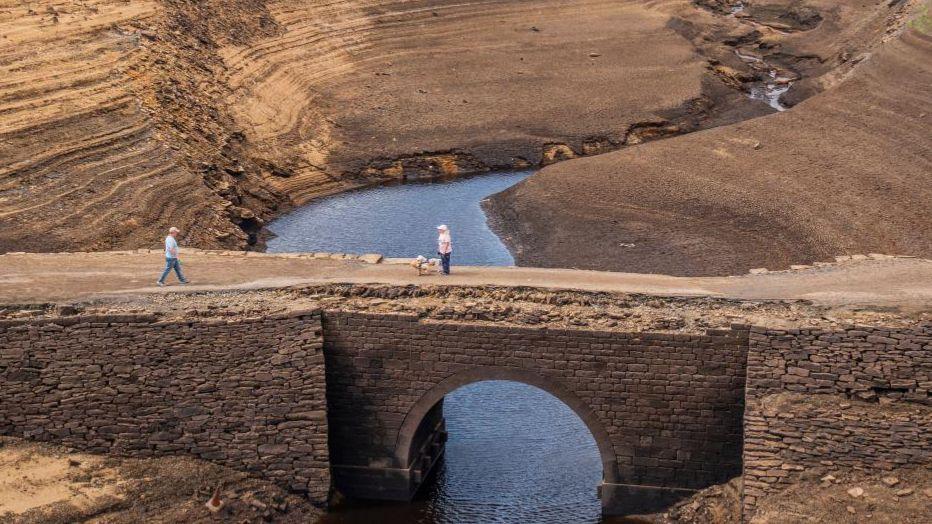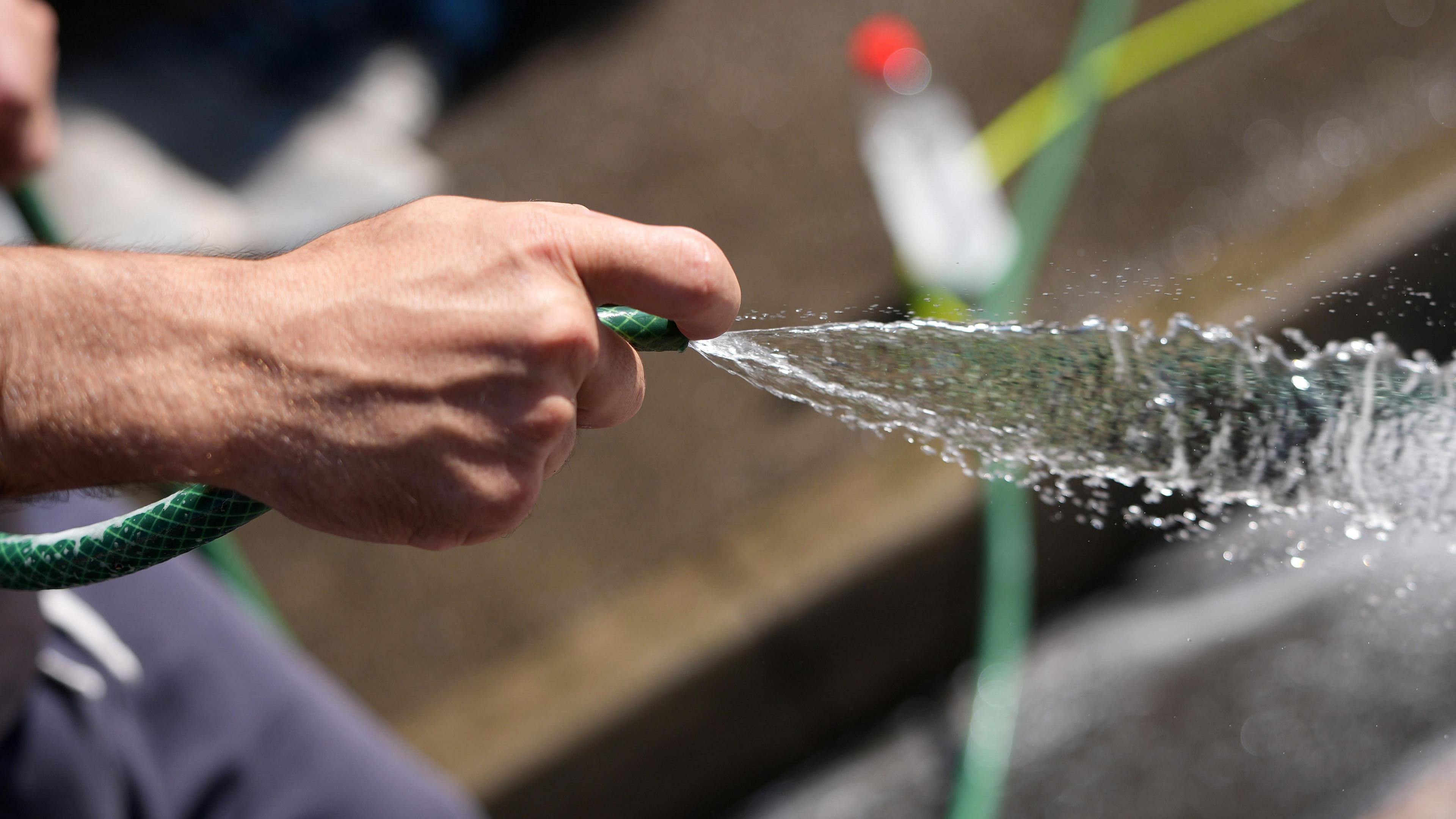Water firm applies to bolster supplies from rivers
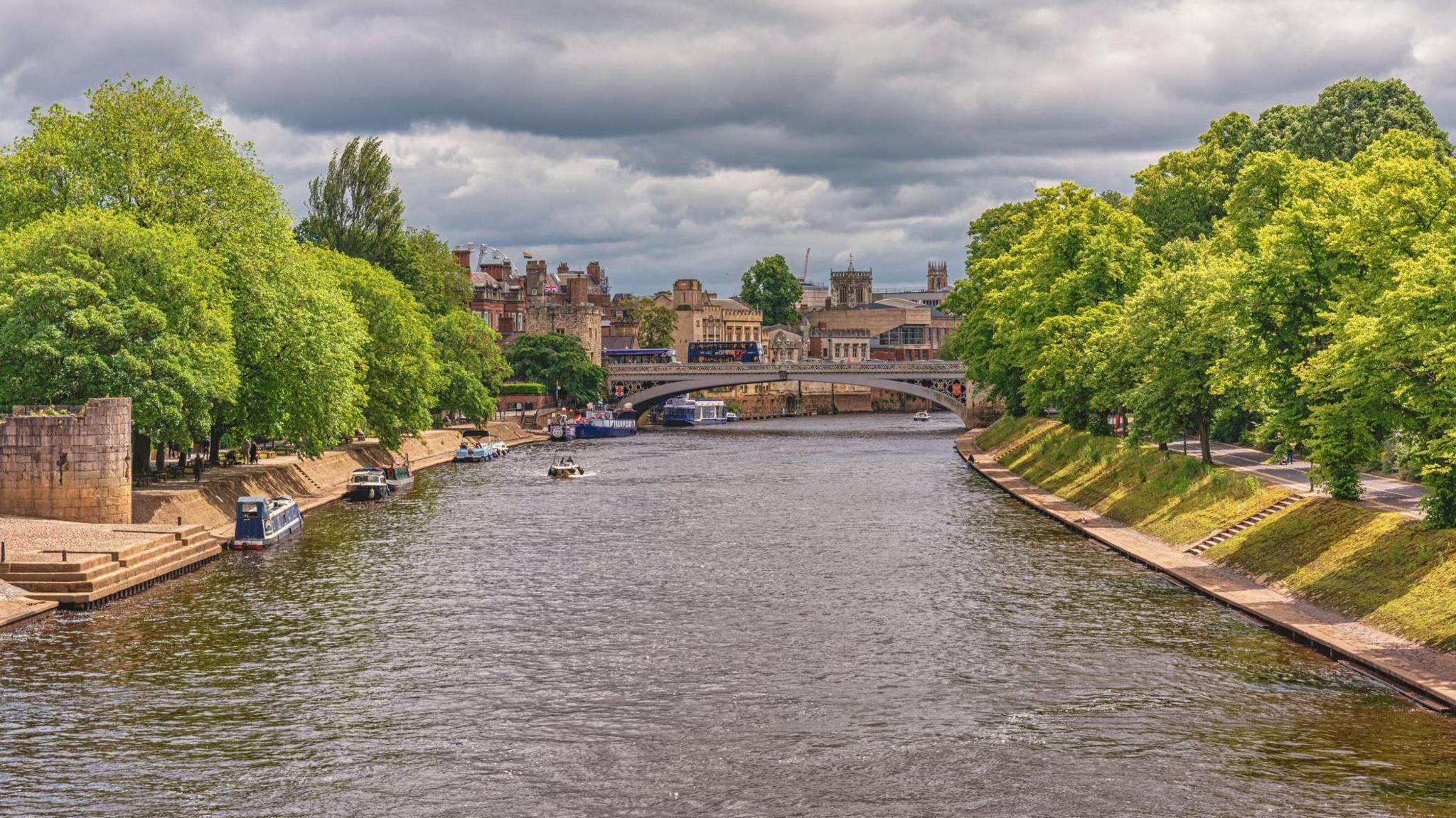
One order would allow more water to be taken from the River Ouse north of York
- Published
Yorkshire Water wants to use river water to bolster its supplies after reservoir levels dropped below 50%.
The company has applied to the Environment Agency for drought orders allowing it to extract additional water from the River Ouse, near York, and River Wharfe, near Ilkley.
It has also asked for permission to limit the the amount of water released from 12 of its reservoirs back into Wharfe, Aire, and Worth river valleys.
Dave Kaye, director of water at Yorkshire Water, said if approved the orders would help to "reduce the pressure on our reservoirs and help to extend vital water supplies through summer".
Yorkshire has endured its driest and warmest spring in 132 years, resulting in a hosepipe ban being introduced across the region earlier this month.
If approved the order on the Ouse would allow the firm to draw an additional 60,000 cubic metres per day at Moor Monkton when the river Ouse flows at Skelton are below 1,000,000 cubic metres per day.
For the Wharfe the order would enable Yorkshire Water to abstract from the river the full volume of water released into the Wharfe from the Grimwith reservoir when conditions allow.
Mr Kaye said: "It's not a decision we've made lightly, but it is the next essential step to protect water supplies for our customers and to protect the environment after an extremely dry year so far and the declaration of drought in our region."
Commenting on the application to limit flow from 12 reservoirs, he added: "Under the drought permits these reservoirs will still provide compensation flows to downstream watercourses to protect the environment, but the flows will be reduced to keep water back for supply to customers."
If approved, the drought permits will be in place for up to six months.
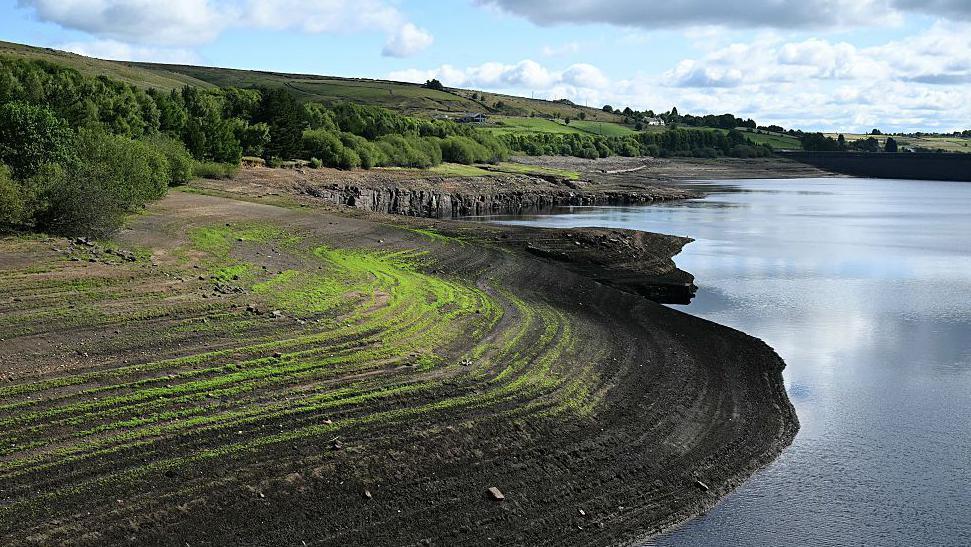
The applications follow on from a hosepipe ban imposed earlier this month
Yorkshire Water boss Nicola Shaw said the current hosepipe ban, which prevents people using hosepipes for activities such as watering the garden, washing the car or filling a paddling pool, was likely to stay in place until winter.
On Monday the firm said while recent rain across the region was "very welcome" it was "not going to improve things to a level where reservoir stocks recover".
When the hosepipe ban was announced the firm said reservoir levels stood at just over 50% - a record low for the time of the year and "significantly below" the average for early July, which is nearer 80%.
Get in touch
Tell us which stories we should cover in Yorkshire
Listen to highlights from West Yorkshire, South Yorkshire and North Yorkshire on BBC Sounds, catch up with the latest episode of Look North.
- Published22 July
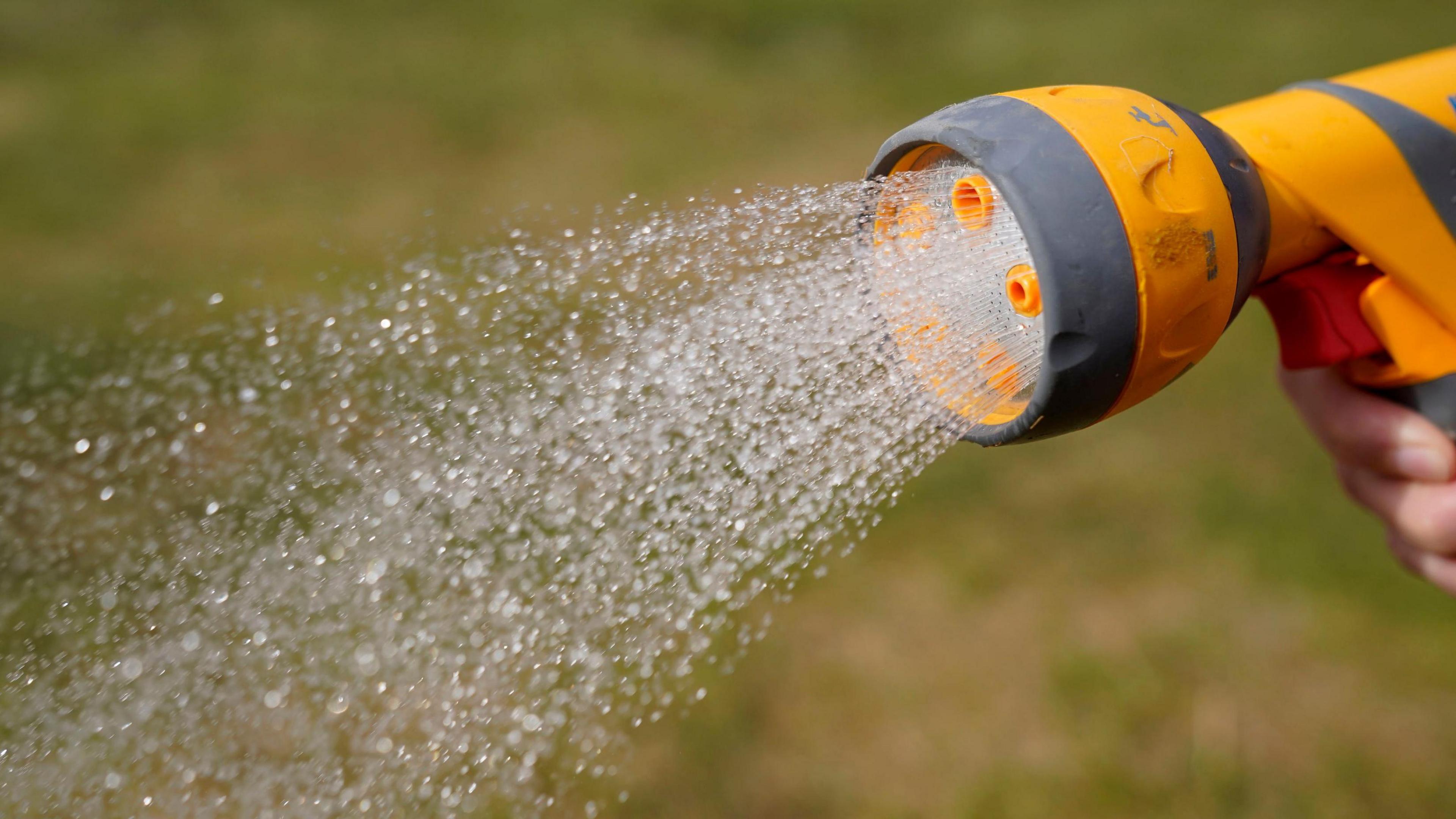
- Published19 July
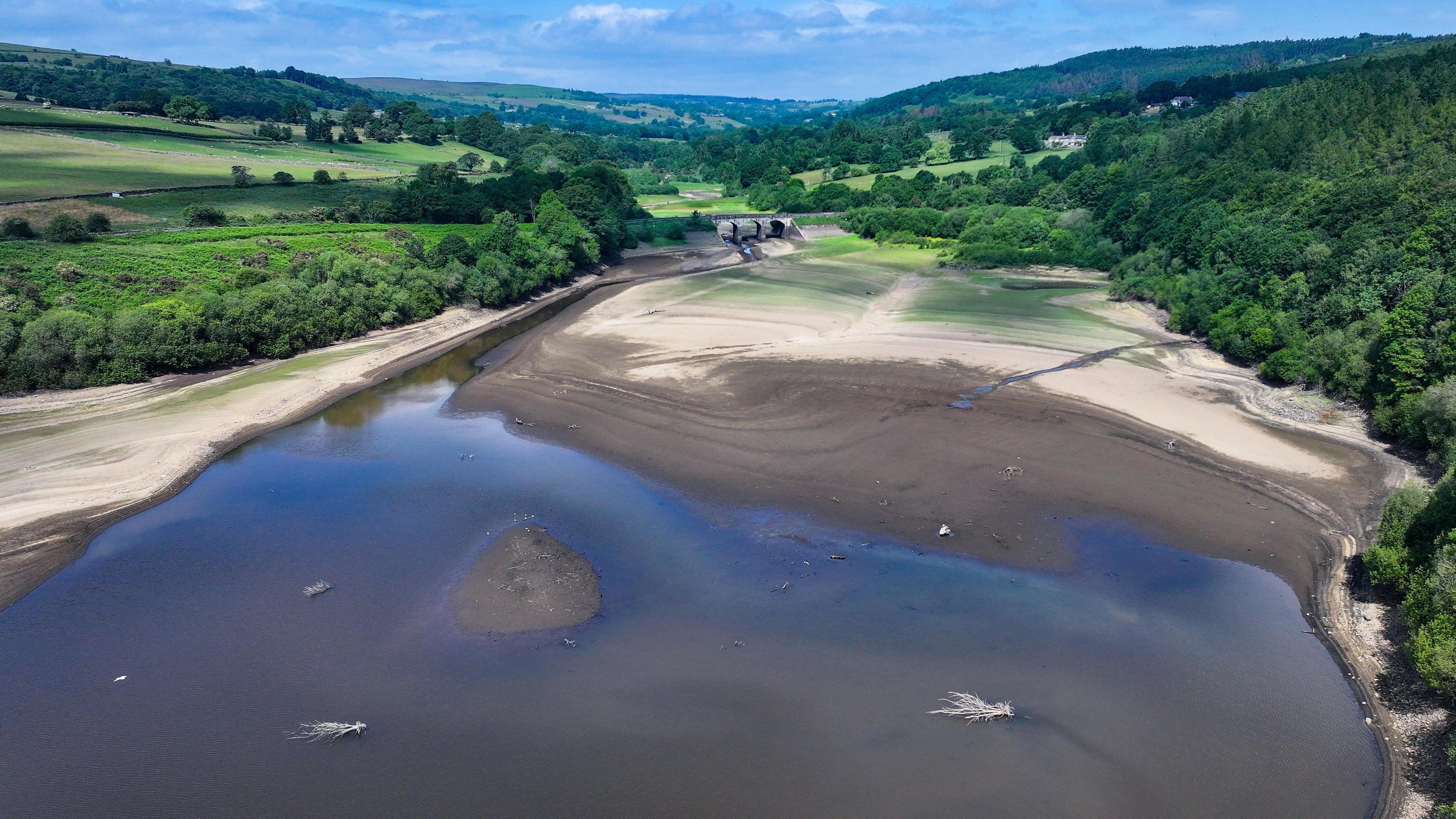
- Published11 July
